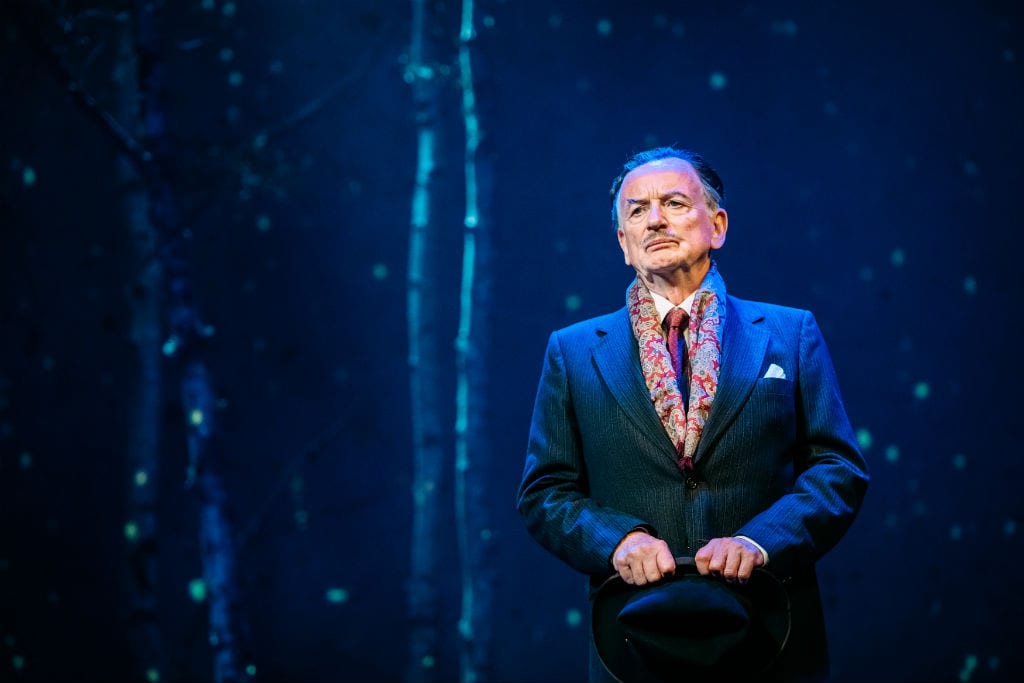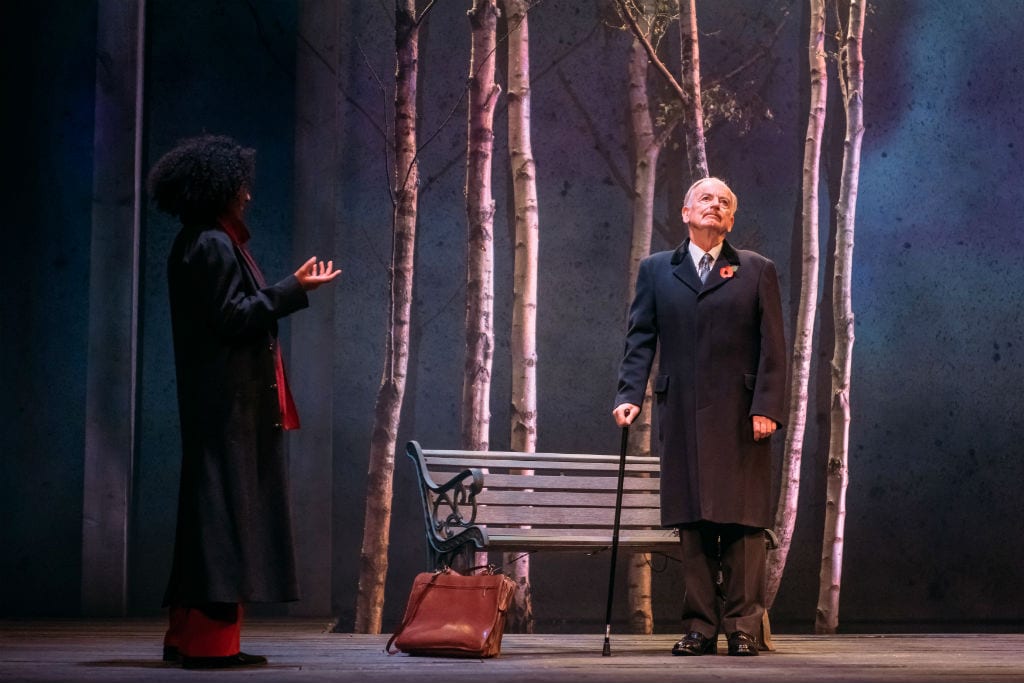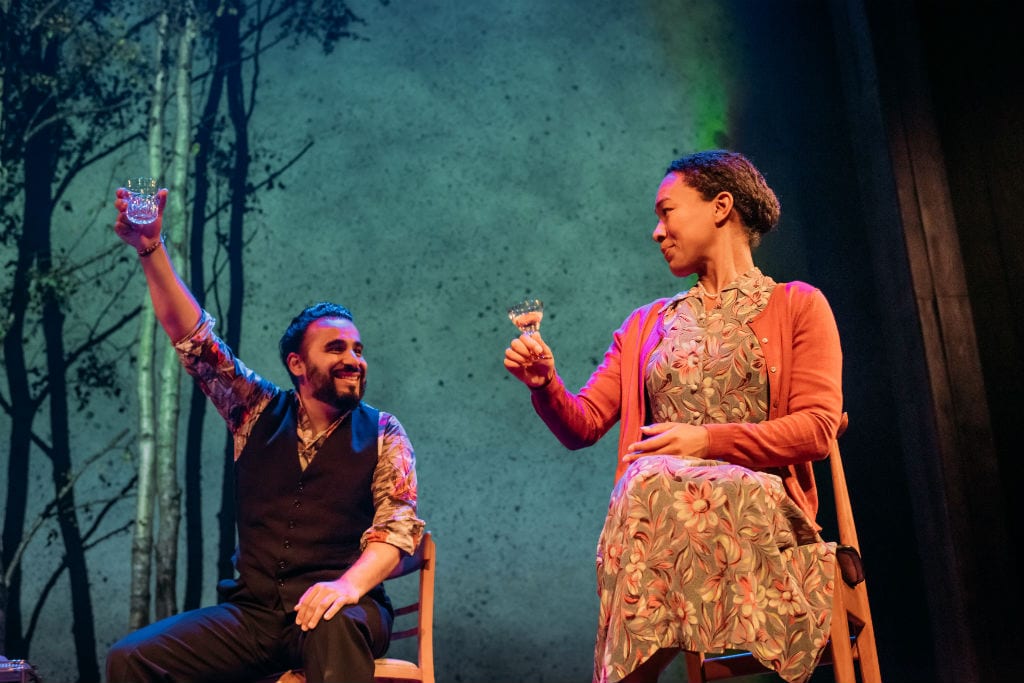The Birmingham Speech. That is what Enoch Powell termed his diatribe better known to most by the moniker ‘Rivers of Blood’. Powell’s title hid beneath its innocuous words a virulent tirade that incited racist attacks and seemingly welcomed a civil war along the lines of race.
In What Shadows, writer Chris Hannan takes Powell (Ian McDiarmid) and his speech as a starting point for examining English identity, through a story set in 1968 and 1992. The focus is Rose (Amelia Donkor), and her attempts to write a book on identity and conflict with ex-academic Sofia (Joanna Pierce).
Regrettably, the play asks only garbled questions about identity and then fails to answer them or provoke satisfactory answers from its audience. During the excessive running time, a variety of two-dimensional clichés in the guise of characters trot out to talk briefly at cross-purposes about what it means to be English. Stalking through this confusion is Powell himself.
We should not demonise people like Powell, for by doing so we lose the power to understand what drives them and how we can learn from them. Unfortunately, Hannan’s overly sympathetic treatment results in jarring missteps, including a clichéd gay character and a bevy of laugh-out-loud lines for Powell himself. These are not used to make the audience ashamed of laughing along with a racist, but seem to be included to make us like him. We do not need to like Powell to understand what drives him.
In any case, what drives Powell is merely petty resentment over thwarted political ambition and a fantasist’s idea of England. In trying to understand Powell, What Shadows provides no answers to what might have driven the disenfranchised white working class who spurred him on, and therefore no answers to the similar events of today which the play is responding to. These are the people Powell relies upon, who give him power. What Shadows only tries to understand the symptom, not the cause.
There is a hint of what might have been possible in the character of Sofia. A genuinely well-rounded character, she evokes sympathy and distaste in equal measure. If Hannan really wanted to examine what it means to be English, and why so many follow extremist leaders and ideologies, then a play based on fewer characters, more like Sofia, would have been the way forward.
The production of What Shadows, is also disappointing. Ian McDiarmid is effective as Powell, although his lack of redeeming features makes him rather tiresome to watch. Several of the other performances are regrettably significantly weaker.
The actors are not helped by the staccato dialogue, and frequently stumble over their lines, lines which never engage with each other, but simply fly about the stage at cross-purposes. Although this may be intentional in order to make a point about the need for conversation, without any satisfying pay-off they swiftly become tiresome to hear.
What Shadows seeks to ask questions about English identity, but by involving Enoch Powell so heavily, becomes bogged down in a race war it barely addresses. Much like the difference between ‘The Birmingham Speech’ and ‘Rivers of Blood’, the Powell of What Shadows claims his arguments are about immigration, but couches them in the language of racism. The play never challenges this, which leaves a very nasty taste in the mouth.




